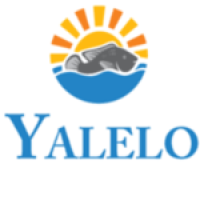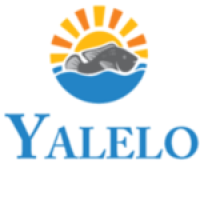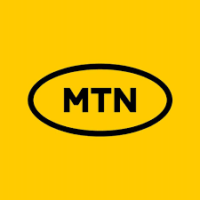The Danish Refugee Council assists refugees and internally displaced persons across the globe: we provide emergency aid, fight for their rights, and strengthen their opportunity for a brighter future. We work in conflict-affected areas, along the displacement routes, and in the countries where refugees settle. In cooperation with local communities, we strive for responsible and sustainable solutions. We work toward successful integration and – whenever possible – for the fulfillment of the wish to return home.
The Danish Refugee Council was founded in Denmark in 1956 and has since grown to become an international humanitarian organization with more than 7,000 staff and 8,000 volunteers. Based in Copenhagen (Denmark) and present in forty countries, the Danish Refugee Council is a non-profit-making, politically independent, non-governmental and non-denominational relief organization.
Our vision is a dignified life for all displaced. All our efforts are based on our value compass: humanity, respect, independence and neutrality, participation, and honesty and transparency.
Background
Danish Refugee Council (DRC), and its safety unit, has had an operational presence in Nigeria since 2015. DRC Nigeria is the largest DRC country mission in the West Africa region and one of the largest DRC country missions globally. Currently, DRC delivers life-saving assistance and protection to vulnerable, conflict-affected populations including internally displaced persons, returnees and host communities in the areas of armed violence reduction, humanitarian mine action, livelihoods, nutrition and food security, protection, shelter and non-food items (NFI) and water, sanitation and hygiene (WASH) in 30+ Local Government Areas (LGAs) across Borno, Adamawa and Yobe states in northeast Nigeria.
Purpose
The Protection Assistant, under the supervision of the Protection Officers and Protection team lead, is responsible for the day to day implementation of the various protection activities in the field locations under his/her responsibility. This includes conduct Protection Monitoring, referrals and follow up of referrals, (including establishing referral pathways), identification of IPA beneficiaries and follow up of cases, psychosocial support activities, monitor the protection incentive workers’ work and manage them on a daily basis.
The Protection Assistant will also be responsible for supporting needs and programmatic assessments, supporting the preparation of activity and protection reports and analysis (information collection, community consultations, etc.), identifying and communicating protection concerns in his/her locations, identifying and communicating programmatic needs in targeted locations, supporting the Officers in providing capacity building to key stakeholders, and in collecting and managing project data ensuring the highest standards of data and information protection and confidentiality.
Responsibilities
• Ensure the organization and the implementation of all protection activities at field level in accordance with the agreed Work plan (under the supervision of the Protection Officers and Protection team lead) and the international standards
• Ensure the management of the field protection incentive workers (team and work management)
• Prepare necessary activity and protection reports (weekly, monthly, ad hoc)
• Participate in conducting needs and programmatic assessments in targeted locations
• Identify and intervene on protection cases in the camps and host communities with technical support from their line manager.
• Refer protection cases to partner agencies and seek to solicit services for them.
• Ensure all protection activities and cases re individually documented, filed and up to date in Kobo.
• Engage with communities directly and create awareness on human rights, child protection, SGBV, and other protection-related topics
• Train community members, partner staff and other local authorities on protection topics
• Identify protection trends and bring this to the attention of the line manager for action planning
• Carry out advocacy and sensitization activities at the field level
• Represent DRC protection in all partner discussions at the field level
• Participate in and actively recruit casual social workers are needed.
• Conduct community meetings, FGDs, and other direct community activities as part of protection monitoring.
• Document all protection activities on Kobo.
• Carry out any delegated activities as assigned by DRC management at the field level including supervision of field bases.
• Manage DRC protection assets assigned to the field of operation.
• Liaise with security officers in DRC to keep up to date on the security situation of the field base at all times.
• Support protection coordinator, the manager with itinerary planning for field visits including donor visits.
• Provide detailed updates of activities within your designated field site.
The responsibilities listed in the JD are not exhaustive and may be readjusted according to operational needs but will remain in line with the overall purpose of the role.
Experience and technical competencies
- Experience and technical competencies: (include years of experience)
- Diploma or degree in community development, psychology, sociology, food management and other social sciences relevant.
- Knowledge of protection norms, principles, and activities
- Excellent communication skills (oral and writing)
- Professional fluency in English and Hausa
- Ability and willingness to maintain regular presence at project sites (remote / field sites) and to work during irregular working hours and in insecure environments
- Strong interpersonal, communication, and negotiation skills – self-motivated individuals, able to take initiative and propose solutions, resilient, positive, and able to work independently.
- Good understanding of the Northeast Nigeria operational context
- Must have basic level computer skills.
Desirable:
- Excellent communication skills (oral and writing)
- Professional fluency in English, Hausa, Kanuri is an added advantage.
- Strong interpersonal, communication, and negotiation skills – self-motivated individuals, able to take initiative and propose solutions, resilient, positive, and able to work independently.
Education: (include certificates, licenses etc.)
- Diploma or BA. /BSc. in relevant field (sociology, social work, psychology, education, counselling, human rights, development studies etc.)
- Alternatively: experience as DRC Protection field worker.
1. General Regulations
- The employee shall follow DRC instructions on safety, confidentiality and ethical guidelines, including the Code of Conduct and the Humanitarian Accountability Framework.
- Employee should not engage in any other paid activity during the DRC contract period without prior authorization.
- Employee should not engage in any activity that could harm DRC or the implementation of any project during the DRC contract period.
- Employee should not give interviews to the media or publish project-related photos or other material without prior authorization.
- Employee shall return all borrowed equipment for the project to DRC after the end of the contract period or upon request.













